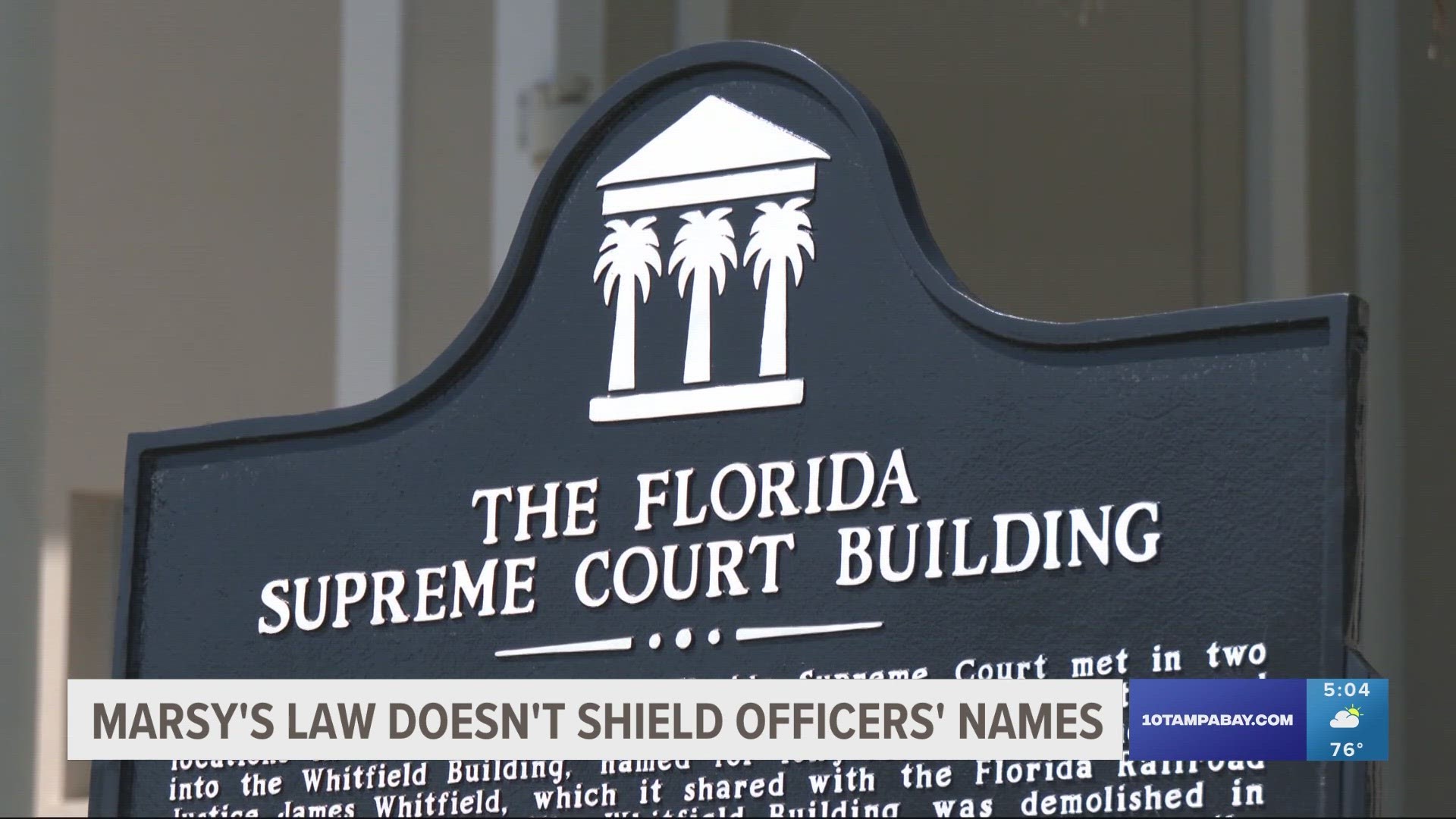TALLAHASSEE, Fla. — The Florida Supreme Court unanimously ruled that the voter backed Marsy's Law does not guarantee a right to privacy for any person victimized by a crime, including police officers.
Justices issued their 6-0 decision Thursday. Justice Meredith L. Sasso did not particpate in the ruling, the court said.
A challenge to the state's constitutional amendment arose following two use-of-force incidents in 2020 in which Tallahassee police officers were cleared after shooting and killing armed suspects who threatened officers.
The shootings led to a years-long legal battle, ultimately resulting in the City of Tallahassee v. the Florida Police Benevolent Association reaching the Supreme Court.
"Marsy’s Law guarantees to no victim—police officer or otherwise—the categorical right to withhold his or her name from disclosure," the justices wrote. "No such right is enumerated in the text of article I, section 16(b) of the Florida Constitution."
In the first encounter in May 2020 – which occurred five days before George Floyd was murdered by a police officer – a Tallahassee officer was charged by a man with a large, hunting-style knife who yelled, “Ima kill ya.” The officer fired while the man was about 10 to 15 feet away, and the man died from the gunshot wounds, according to court records.
Just two days after Floyd’s death, the second Tallahassee officer was dispatched to search for a stabbing suspect. The officer was confronted by a suspect armed with a handgun, and he fired at the suspect, who later died.
Tallahassee officials said they intended to disclose the officers’ identities publicly. But the officers and their bargaining representative, the Florida Police Benevolent Association, sued the city, arguing the officers were victims of imminent threats of harm whose identities should be protected under the law. Officers have similarly been claiming privacy rights under variations of Marsy's Law already on the books in other states.
When the city went to release the officers' names to the public, the PBA filed to block it, saying the officers’ identities were protected under Marsy's Law.
Just more than 61 percent of voters approved the law, which was called the Florida Crime Victims Bill of Rights, during the 2018 election.
Mark Caramanica, an attorney representing several media outlets in the case, including the Tallahassee Democrat and others, told the newspaper the ruling was "a win for government transparency."
An attorney for the Florida Police Benevolent Association, Luke Newman, told the outlet after the ruling that the police union is in touch with the two officers and is preparing them for the public release of their names.
"I'm disappointed, and I feel like it was wrongly decided," Newman told the newspaper.
Previous reporting by Fresh Take Florida, a news service of the University of Florida College of Journalism and Communications, contributed to this report.

